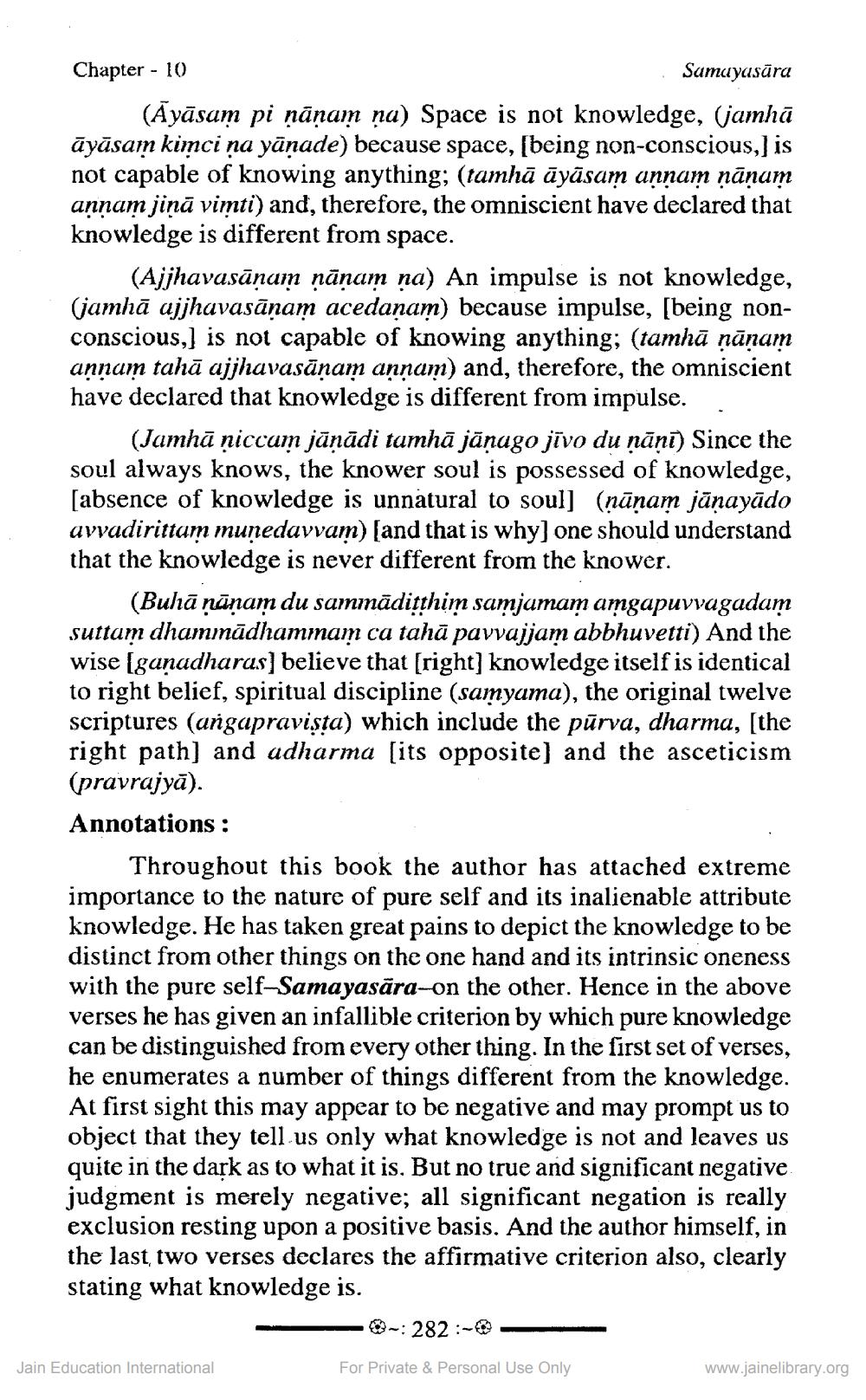________________
Chapter - 10
Samayasāra
(Āyāsam pi ṇāṇam ṇa) Space is not knowledge, (jamhā āyāsam kimci ṇa yāṇade) because space, [being non-conscious,] is not capable of knowing anything; (tamhā āyāsam annam ṇāṇam annam jiņā vimti) and, therefore, the omniscient have declared that knowledge is different from space.
(Ajjhavasāṇam ṇāṇam na) An impulse is not knowledge, (jamhā ajjhavasāṇam acedaṇam) because impulse, [being nonconscious,] is not capable of knowing anything; (tamhā ṇāṇam annam tahā ajjhavasāṇam annam) and, therefore, the omniscient have declared that knowledge is different from impulse.
(Jamhā ṇiccam jāṇādi tamhā jāṇago jīvo du ṇāṇī) Since the soul always knows, the knower soul is possessed of knowledge, [absence of knowledge is unnatural to soul] (ṇāṇam jāṇayādo avvadirittam muṇedavvam) [and that is why] one should understand that the knowledge is never different from the knower.
(Buhā ṇānam du sammādiṭṭhim samjamam amgapuvvagadam suttam dhammādhammam ca tahā pavvajjam abbhuvetti) And the wise [gaṇadharas] believe that [right] knowledge itself is identical to right belief, spiritual discipline (samyama), the original twelve scriptures (angapraviṣṭa) which include the pūrva, dharma, [the right path] and adharma [its opposite] and the asceticism (pravrajyā).
Annotations:
Throughout this book the author has attached extreme importance to the nature of pure self and its inalienable attribute knowledge. He has taken great pains to depict the knowledge to be distinct from other things on the one hand and its intrinsic oneness with the pure self-Samayasara-on the other. Hence in the above verses he has given an infallible criterion by which pure knowledge can be distinguished from every other thing. In the first set of verses, he enumerates a number of things different from the knowledge. At first sight this may appear to be negative and may prompt us to object that they tell us only what knowledge is not and leaves us quite in the dark as to what it is. But no true and significant negative judgment is merely negative; all significant negation is really exclusion resting upon a positive basis. And the author himself, in the last two verses declares the affirmative criterion also, clearly stating what knowledge is.
Jain Education International
-: 282-0
For Private & Personal Use Only
www.jainelibrary.org




